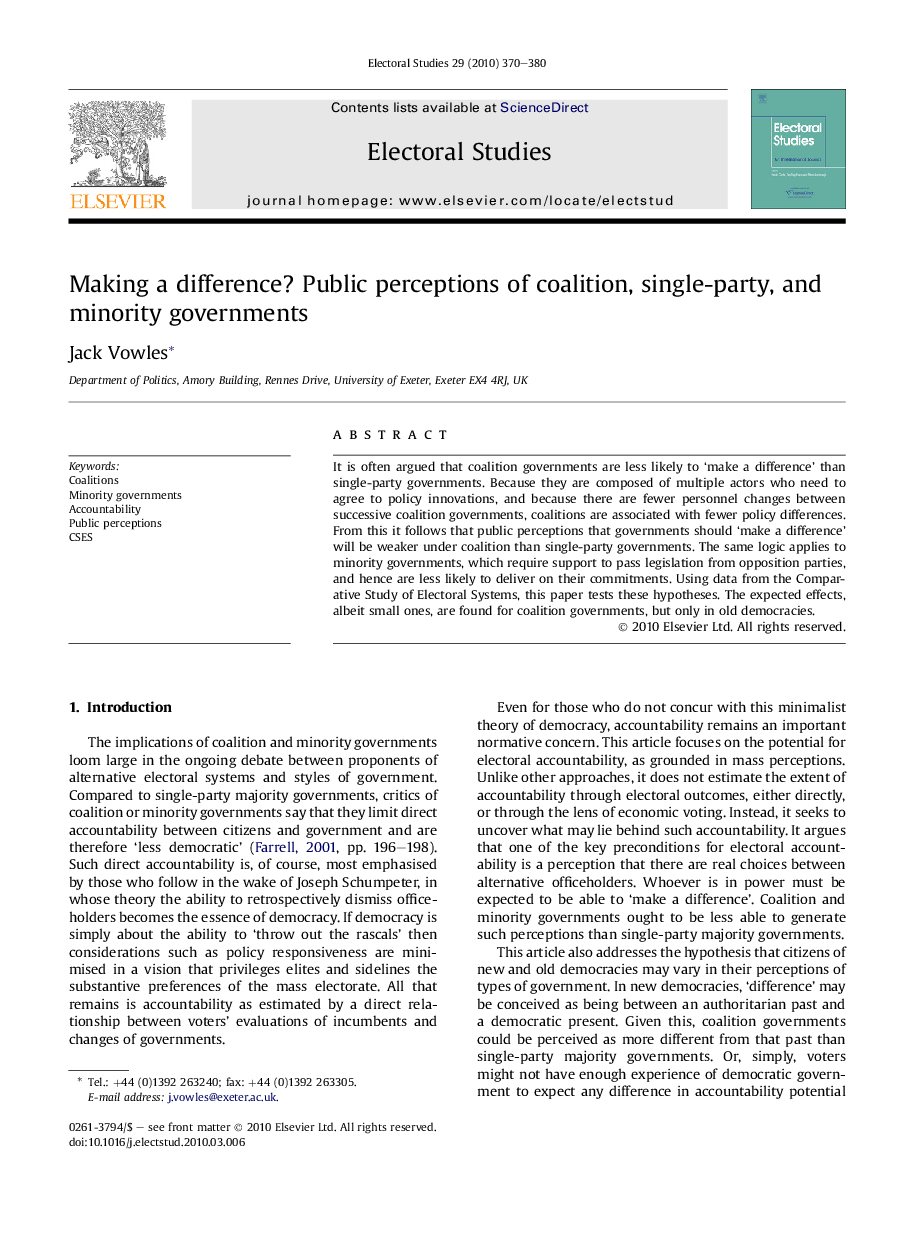| Article ID | Journal | Published Year | Pages | File Type |
|---|---|---|---|---|
| 1051956 | Electoral Studies | 2010 | 11 Pages |
It is often argued that coalition governments are less likely to ‘make a difference’ than single-party governments. Because they are composed of multiple actors who need to agree to policy innovations, and because there are fewer personnel changes between successive coalition governments, coalitions are associated with fewer policy differences. From this it follows that public perceptions that governments should ‘make a difference’ will be weaker under coalition than single-party governments. The same logic applies to minority governments, which require support to pass legislation from opposition parties, and hence are less likely to deliver on their commitments. Using data from the Comparative Study of Electoral Systems, this paper tests these hypotheses. The expected effects, albeit small ones, are found for coalition governments, but only in old democracies.
